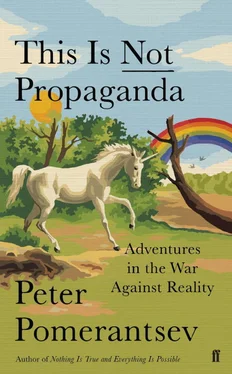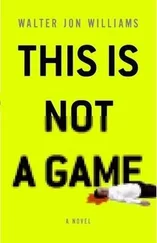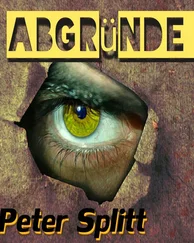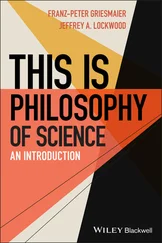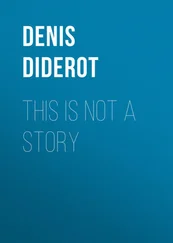After the Cold War there was only one political idea and one vision of the future left: globalisation fostered by the victory of ‘freedom’ – free markets, freedom of movement, freedom of speech, political freedoms. In democracies, political parties still had to prove that they could manage this process better than their rivals, though this was more a technocratic process than a battle of new ideas.
We can find many moments when that vision of the future crumpled. The invasion of Iraq, which was called ‘Operation Iraqi Freedom’, undermined the idea that political freedom was a historical inevitability. When Saddam Hussein’s statue was torn down in Baghdad, in scenes reminiscent of the destruction of Lenin’s statues in Eastern Europe, the visual imagery seemed to suggest a historical equivalence, a montage of shots signifying one great story. Great Cold War dissidents, including Václav Havel, backed the war, in terms that echoed their own battles against dictatorship. [11]Those who led the overthrow of Saddam invoked the struggle against Soviet rule and posited it as part of one continuous history.
‘President Reagan said that the day of Soviet tyranny was passing, that freedom had a momentum that would not be halted,’ President George W. Bush announced in 2003, before connecting the battles of the Cold War with his vision for the Middle East post the US invasion. ‘Iraqi democracy will succeed, and that success will send forth news, from Damascus to Tehran, that freedom can be the future of every nation.’ [12]
Instead the invasion brought civil war and hundreds of thousands of deaths. Words and images that were imbued with powerful meaning in East Berlin and Prague lost that significance in Baghdad.
But we still lived in a world in which there was an idea of the future, at least an economic one of ever greater globalisation. Then came the financial crash of 2008. The idea that free markets could deliver freedom from want became risible; the dream that Europe’s carefully tended market was sheltered from vast economic shocks was shattered. With that the last of the old, Cold War-framed notions of a universal future fell away for many. Elsewhere, from Mexico City to Manila, they had already been dissolving gradually, like an old bar of soap coming apart in mushy flakes.
But if the need for facts is predicated on a vision of a concrete future that you are trying to achieve, then when that future disappears, what is the point of facts? Why would you want them if they tell you that your children will be poorer than you? That all versions of the future are unpromising? And why should you trust the purveyors of facts – the media and academics, think tanks, statesmen?
And so the politician who makes a big show of rejecting facts, who validates the pleasure of spouting nonsense, who indulges in a full, anarchic liberation from coherence, from glum reality, becomes attractive. That enough Americans could vote for someone like Donald Trump, a man with so little regard for making sense, whose many contradictory messages never add up to any very stable meaning, was partly possible because voters felt they weren’t invested in any larger evidence-based future. Indeed, in his very incoherence lies the pleasure. All the madness you feel, you can now let it out and it’s OK. The joy of Trump is to validate the pleasure of spouting shit, the joy of pure emotion, often anger, without any sense.
And it’s no coincidence that so many of the new breed of political actors are also nostalgists. Putin’s Internet troll armies sell dreams of a restored Russian Empire and Soviet Union; Trump tweets he will ‘Make America Great Again’; Turkish and Hungarian media dream of restoring phantoms of ancient greatness.
‘The twentieth century began with utopia and ended with nostalgia. The twenty-first century is not characterized by the search for newness, but by the proliferation of nostalgias,’ wrote the Russian-American philologist Svetlana Boym, who saw nostalgia as a way of escaping the strictures of rationally ordered time. She contrasted two types. One, which is healthy, she called ‘reflective’ nostalgia: it looks at individual, often ironic stories from the past, tries to tease out the difference between the past and present to formulate the future. The other, harmful type she called ‘restorative’ nostalgia. This strives to rebuild lost homelands with ‘paranoiac determination’, thinks of itself as ‘truth and tradition’, obsesses over grand symbols and ‘relinquish[es] critical thinking for emotional bonding… Unreflective nostalgia can breed monsters.’ [13]
‘Restorative’ nostalgia has taken hold from Moscow to Budapest to Washington DC. The last things desired by those who purvey these phantom, fabricated pasts are facts.
But if in Western Europe and America this manifests itself in eccentric elections, the consequences of a politics where facts have lost their potency are far deadlier elsewhere.
In Aleppo
When the Syrian regime’s rockets, shells and bombs were lobbed into eastern Aleppo, Khaled Khatib would grab a camera and record the destruction of his city. People would turn on him, screaming, ‘Aren’t you ashamed to film us? Do you like to see our tears? We’ve lost everything.’
He would try to explain that he was here to help, that if the whole world knew how innocent people were being targeted, then it would have to do something. There were rules after all. Things from the UN. Laws… You can’t just bomb civilians, children, old people like this.
Scores of young men and women were constantly scurrying around the city, filming and uploading video of the damage at what they called the ‘Aleppo media centre’. Some had travelled to Beirut for video training from humanitarian organisations. ‘Capture the crimes and this will help stop the atrocities,’ they had been told. They were now ‘citizen journalists’, ‘media activists’. President Assad’s helicopters were circling over their town, hovering overhead, then pushing off barrel bombs – oil drums, fuel tanks and gas cylinders filled with explosives and metal fragments – onto the city. Aleppo’s citizens were helpless beneath them. But they could film, and that, they felt, hoped, connected them to something greater and more powerful than the helicopters.
In 2011 several Syrian cities had risen up against the forty-year dictatorship of the Assad family, in the Syrian iteration of the Arab Spring. The protests had been sparked when the regime tortured teenagers who dared to graffiti anti-Assad slogans on a high-school wall, [14]a subversive act under a system whose power was predicated on making people repeat its ridiculous slogans publicly as a sign of fealty, whether they believed in them or not. ‘This obedience makes people complicit, it entangles them in self-enforcing relations of domination,’ wrote the anthropologist Lisa Wedeen in her study of the Syrian regime, [15]and it reminds me of Havel’s interpretation of late Soviet Communism. When I have talked to Syrians involved in those first demonstrations in 2011, they often come back to the intoxication they felt at finally saying, screaming, shouting, singing publicly what they thought about Assad.
Assad responded with bombs, rockets, snipers, chemical weapons, more executions and more torture. In 2012 rebels took eastern Aleppo, and its bombardment by the regime began. A million people fled. [16]Khaled was sixteen. He wanted to do something that had meaning, show the world what was happening in Aleppo.
The first people on the scene after an attack were the rescue services, who pulled victims out of the rubble. When they arrived they would ask everyone to be quiet, listen for the sound of sobbing under the stones and then begin digging. Many of them had no background in rescue operations; they were taxi drivers, bakers and primary-school teachers. After 2013 they started to get money, training and bulldozers from the UK, Dutch and US governments. They became known as the ‘White Helmets’ for their distinctive headwear. Khaled began to record their missions. He spent days filming his first rescue operation after a barrel-bomb attack had flattened several houses at once. When you film you have to focus on every detail. You focus so long it stays with you and you remember the world as a sequence of close-ups: torn-off hands, screams, limbs, tears, everywhere dust, more dust, more hands, rubble. During that first rescue operation Khaled’s dreams became full of body parts. After he uploaded the footage at the media centre he swore never to film again. Then he checked social media and saw his material going viral. He realised his efforts were worth it.
Читать дальше
